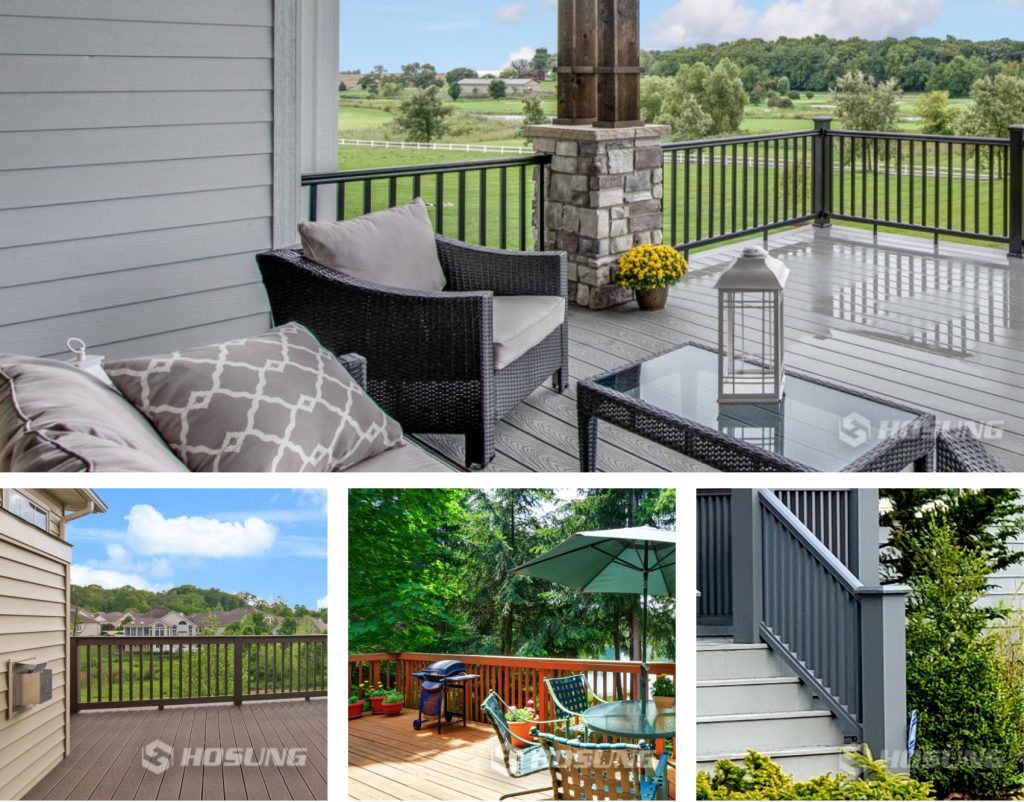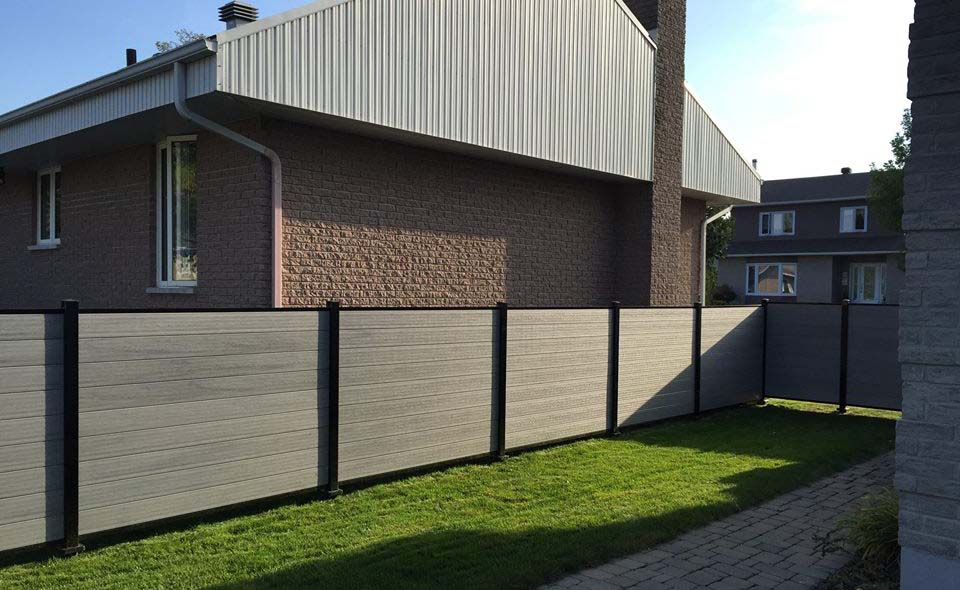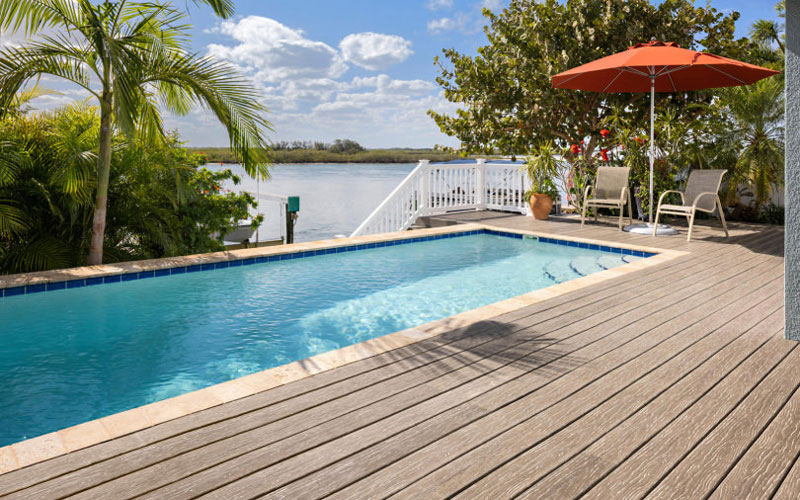Australia, with its unique climate conditions, diverse architectural styles and strict building standards, makes commercial decks play an important role in various occasions. Whether it is outdoor catering, tourist resorts, commercial office buildings, or public facilities and stadiums, decks can provide beautiful, durable and safe spaces. This article will explore in depth the main application occasions of Australian commercial decks in Australia, the applicable deck types, the reasons for choosing decks, and the characteristics of various decks, providing reference for related industries.
Table of Contents
Main Application Occasions of Commercial Deck in Australia
In Australia, commercial decks are widely used in various commercial and public places to provide beautiful, durable and safe ground paving solutions. Different environments have different requirements for the material, characteristics and performance of decks. Below we will introduce in detail the main application occasions of commercial decks in Australia, as well as the types of decks suitable for these places and their characteristics.
Catering and Hotel Industry
In Australia, open-air restaurants, cafes and seaside resorts are very popular, and decks are widely used in these places to create outdoor dining areas and leisure spaces. Australian commercial decks can not only enhance the visual effect, but also improve the comfort and safety of the venue.
Applicable deck types:
- Composite Decking
- Hardwood Decking (such as teak, Australian redwood)
- PVC Decking
Reasons and features for selection:
- Strong weather resistance: Australia has a changeable climate, especially in coastal areas, and decks need to have excellent UV and moisture resistance to prevent discoloration and rot.
- Good anti-slip performance: Catering venues may have water or oil stains, and anti-slip surfaces help reduce the risk of accidental slips.
- Easy to clean and low maintenance cost: Composite wood and PVC decks do not require frequent oiling or polishing, and are easy to clean, making them very suitable for commercial operating environments.
- High-end appearance: Hardwood decks give the space a natural and elegant texture and enhance the overall atmosphere.
Tourist resorts and holiday apartments
Australia has a developed tourism industry, and resorts and holiday apartments often focus on the creation of outdoor spaces, such as balconies, pool areas, and outdoor trails. Choosing the right deck material can not only enhance the visitor experience, but also extend the service life of building facilities.
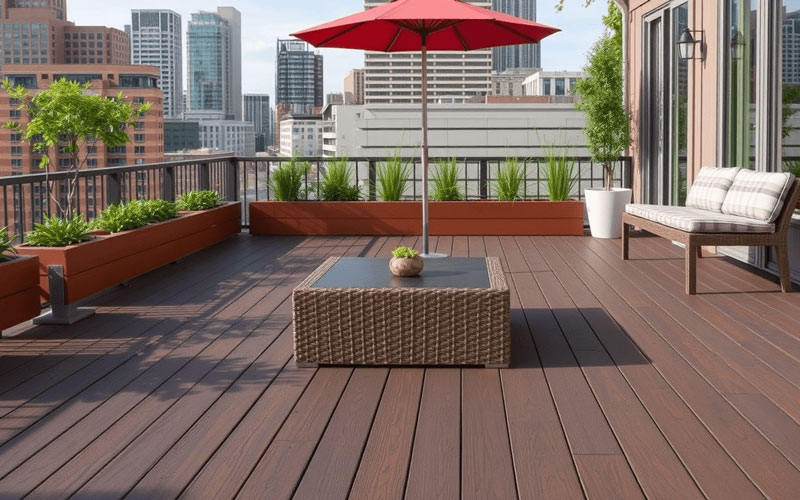
Applicable deck types:
- Hardwood deck (such as teak, ironwood)
- Composite deck (WPC)
- Bamboo deck (Bamboo Decking)
Reasons and features for selection:
- Strong corrosion resistance: The air humidity in coastal areas is high, and the use of corrosion-resistant hardwood or composite decks can effectively extend the service life.
- Beautiful and natural: Natural wood grain or imitation wood composite materials enhance the overall visual effect of the resort and enhance the harmonious beauty with the natural environment.
- Waterproof and anti-slip: The area around the swimming pool or near the beach needs to have excellent waterproof and anti-slip properties to ensure safety.
- Low maintenance requirements: Composite decks and bamboo decks are more durable and have lower maintenance costs than traditional wood.
Commercial office buildings and roof gardens
With the popularity of green buildings and sustainable development concepts, more and more modern commercial office buildings adopt roof gardens and terrace designs to increase green areas and provide employees with comfortable outdoor activity space.
Applicable deck types:
- Composite deck (WPC)
- Steel deck (Steel Decking)
- Bamboo composite deck (Bamboo Composite Decking)
Reasons and features for selection:
- Modern design: Composite decks and steel decks can be perfectly combined with modern architectural styles to provide stylish and beautiful paving effects.
- High durability: Roof gardens and office building terraces are usually exposed to sunlight, wind and rain, and temperature changes, so deck materials with strong UV resistance, water stain resistance, and weather resistance are required.
- Low maintenance cost: Compared with traditional wood, composite decks and bamboo composite decks do not require frequent maintenance and have low long-term use costs.
- Environmentally friendly and sustainable: Bamboo composite decks are a renewable resource and are in line with the concept of environmentally friendly architecture.
Public facilities (parks, pedestrian walkways, observation decks)
Municipal engineering projects require the use of highly durable deck materials to cope with the trampling of large numbers of people and long-term outdoor exposure. Decks in public areas such as parks, sidewalks and viewing platforms need to be durable and skid-resistant to ensure public safety.
Applicable deck types:
- WPC decks
- Treated Pine Decking
- Hardwood decks (Ironbark, Spotted Gum)
Reasons for selection and features:
- Wear and impact resistance: Decks in high-traffic areas need to have excellent wear and impact resistance to withstand long-term use.
- Anti-slip safety design: Adding anti-slip textures can help reduce the risk of slips in rainy and wet conditions.
- Low maintenance cost: Municipal projects usually have limited budgets, and choosing weather-resistant and low-maintenance deck materials can help reduce long-term maintenance costs.
- Environmentally friendly features: Composite decks made of FSC-certified wood or recyclable materials can help reduce environmental burden.
Stadium and swimming pool surroundings
Decks in stadiums and swimming pool surrounding areas need to have good skid resistance, moisture resistance and durability to adapt to high-frequency use needs and various climate conditions.
Applicable deck types:
- PVC decking (PVC Decking)
- Composite decking (WPC)
- Anti-corrosion hardwood decking (such as Merbau)
Reasons for selection and features:
Waterproof and moisture-proof: PVC decking and composite decking do not absorb water and will not rot or deform even if exposed to moisture for a long time.
- Not easy to crack or deform: High-quality composite decking and hardwood decking can remain stable in hot and humid environments and will not expand or shrink due to temperature changes.
- Low heat absorption: Many modern deck materials are specially treated to reduce heat absorption, so they will not burn your feet even when walking in strong sunlight.
- Anti-slip surface: Swimming pool areas are prone to water accumulation. Choosing decks with special anti-slip treatments can effectively reduce the risk of slipping.
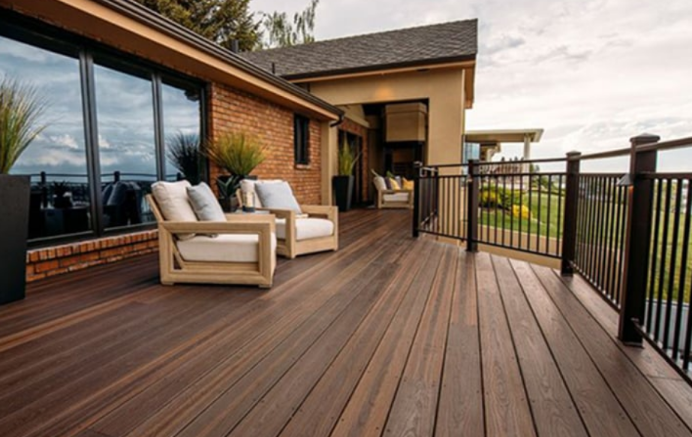
Reasons for choosing commercial decks
The selection of deck materials for commercial venues involves many factors, including usage scenarios, aesthetics, durability, maintenance costs, and environmental characteristics. The following are the main considerations for Australian commercial decking:
Weather resistance and durability
Australia’s climate varies from tropical humid to arid desert to temperate maritime climate. Commercial decking must be able to withstand extreme weather conditions such as strong UV rays, high humidity, salt spray environment, etc.
Low maintenance requirements
Decking for commercial use usually needs to reduce daily maintenance costs, so stain resistance, mildew resistance and scratch resistance are key indicators. For example, composite wood decking and PVC decking are ideal for low maintenance because they do not require regular painting and sealing wax.
Anti-slip performance
In commercial environments, especially in areas such as restaurants, swimming pools, public walkways, etc., anti-slip performance is an important consideration. Texture design, surface treatment and the anti-slip properties of the material itself all affect the safety performance of the deck.
Visual beauty and style matching
Different commercial venues have different aesthetic requirements. For example, high-end resorts tend to choose natural wood to create a warm feeling, while modern office buildings may prefer simple style composite decks or metal decks.
Environmental sustainability
The Australian construction industry has high requirements for environmental protection, and many commercial projects prefer to use sustainable materials, such as FSC-certified hardwood, recycled plastic composite decks or bamboo composite decks to reduce carbon footprint and environmental impact.
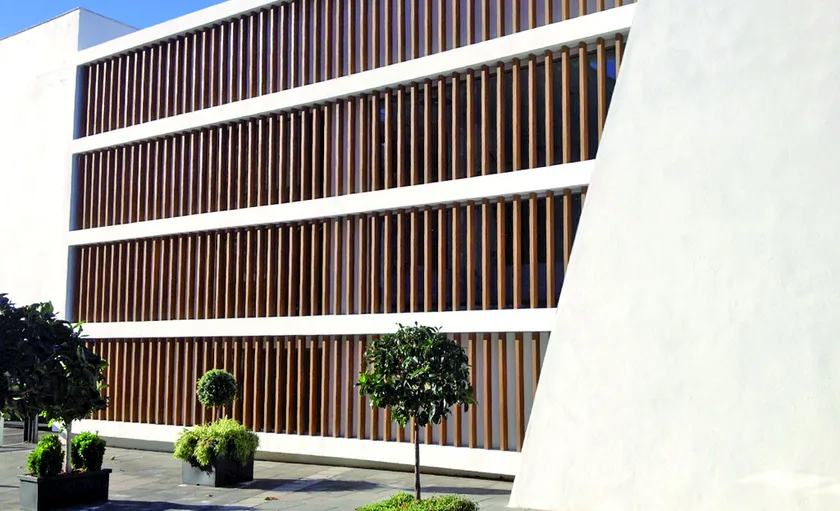
Comparison of the characteristics of various commercial decks
| Decking Type | Weather Resistance | Maintenance | Slip Resistance | Visual Appeal | Eco-friendliness | Application Scenarios |
|---|---|---|---|---|---|---|
| Composite Decking | High | Low | High | Varied | High | Commercial offices, resorts, restaurants |
| Hardwood Decking | Medium-High | Medium | Medium | Natural Aesthetic | Medium | Parks, hotels, viewing platforms |
| PVC Decking | High | Low | High | Modern | Low | Swimming pools, stadiums |
| Steel Decking | High | Low | Medium | Industrial | Low | Rooftop gardens, commercial offices |
| Bamboo Composite Decking | High | Low | High | Natural Feel | High | Resorts, terraces, walkways |
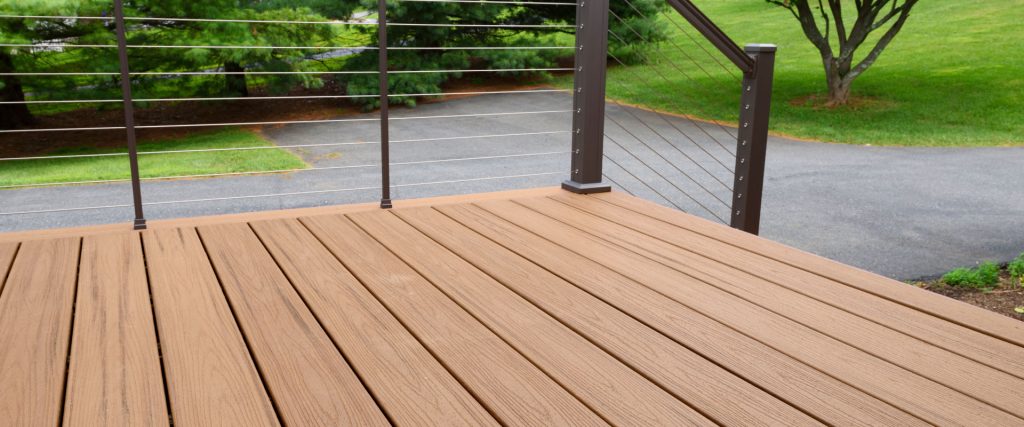
Conclusion
Australian commercial decks are widely used in catering, tourism, office, public facilities and stadiums. Different application occasions require targeted selection of deck materials to meet the requirements of weather resistance, anti-slip, aesthetics and maintenance cost. Composite decks that made by Hosung Deck are increasingly used in the commercial sector due to their low maintenance, weather resistance and environmental protection advantages, while natural hardwood and bamboo decks are favored by high-end venues due to their unique texture. Choosing the right deck material can not only enhance the quality of commercial venues, but also extend its service life and reduce long-term maintenance costs.

